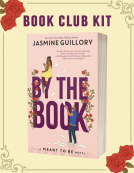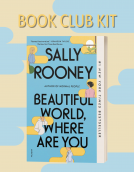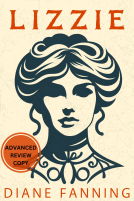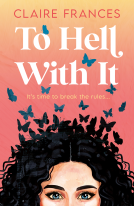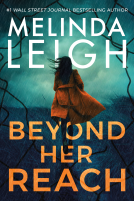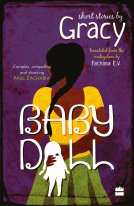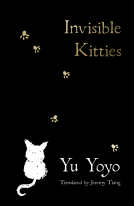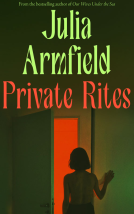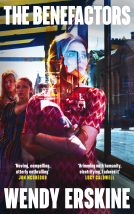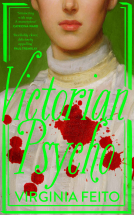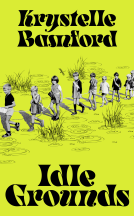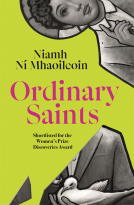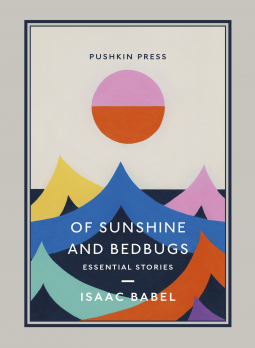
Of Sunshine and Bedbugs
Essential Stories
by Isaac Babel
This title was previously available on NetGalley and is now archived.
Send NetGalley books directly to your Kindle or Kindle app
1
To read on a Kindle or Kindle app, please add kindle@netgalley.com as an approved email address to receive files in your Amazon account. Click here for step-by-step instructions.
2
Also find your Kindle email address within your Amazon account, and enter it here.
Pub Date 28 Jun 2022 | Archive Date 3 Apr 2022
Pushkin Press | Pushkin Collection
Talking about this book? Use #OfSunshineandBedbugs #NetGalley. More hashtag tips!
Description
Isaac Babel honed one of the most distinctive styles in all Russian literature. Brashly conversational one moment, dreamily lyrical the next, his stories exult in the richness of everyday speech and sensual pleasure only to be shaken by brutal jolts of violence.
These stories take us from the underworld of Babel's native Odessa, city of gangsters and lowlives, of drunken brawls and bleeding sunsets, to the terror and absurdity of life as a soldier in the Polish-Soviet War.
Selected and translated by the prize-winning Boris Dralyuk, this collection captures the irreverence, passion and coarse beauty of Babel's singular voice.
Available Editions
| EDITION | Other Format |
| ISBN | 9781782277811 |
| PRICE | US$18.00 (USD) |
| PAGES | 224 |
Featured Reviews
This was a gripping selection of short stories that I raced through. All were beautifully written and raw in their narrative featuring some of the hardest times in history as well as some of the darkest people within the society that the book is written in. It was a quicmk and compelling read.
Beautifully written short stories. They’re a bit dark but definitely a must read! The stories will take you all over the world, from sketchy maffia figures to sensual tales.
Anyone who has read much of the American master George Saunders knows that Isaac Babel was a tremendous influence. Babel is, in fact, the writer Saunders often cites as his favorite of all the short story masters over the centuries. This collection of Babel's stories is very well translated, making the the author still feel fresh and relevant in our trying era. Babel had plenty of trying events of his own in the early 20th century to write about and his stories are well worth reading, both for lessons on craft and lessons on life.
 Media/Journalist 576826
Media/Journalist 576826
A selection of Babel’s short stories, each a masterclass in their own right and made more poignant by their setting, Odessa. Here we see is a place of strife and conflict wrapped up with a desire to belong and to scratch an identity onto the surface of life.
Translated literature is one of my favorite genres, and I've actually never read translated Russian fiction before. This one was great: the prose was lovely, the structure and plot of the stories were easy to follow and I truly enjoyed the characters and themes. If you are looking for a lyrical shorter book to add to your TBR, I really recommend this one.
 Peter L, Librarian
Peter L, Librarian
Of Sunshine and Bedbugs is yet another triumphant collection from Pushkin Press and the incomparable Boris Dralyuk whose translations seem to capture the true essence of Babel as he writes about his surroundings. As a true talent of short story writing and aided by Dralyuk's dedication, Babel and his stories in Of Sunshine and Bedbugs will be a welcome collection for both first-time Babel readers and those eager for more.
 Summer H, Educator
Summer H, Educator
My first book to read by this author but definitely not my last! Such a gripping novel that made it hard for me to put his book down once I started it. Highly recommend!!
This is an interesting collection of short stories first published in the 1920s and 30s. Divided into three sections, the first are stories based on his childhood, the second are about gangsters in Odessa and the third, Red Cavalry are war stories. There is plenty of dark humour, subtle writing about violent events.
The horrors of war are on display (‘Salt’ in particular was quite stunning).
 Olivia A, Reviewer
Olivia A, Reviewer
(Note: I received a proof of this book from NetGalley)
Despite really loving literature from Ukraine, Russia and the region, I have not read any Isaac Babel, in Russian or English, so I enjoyed reading these stories. These stories, in terms of style, are both unique and somehow very contemporary or modern. He's famous for his characters and their personalities, and doesn't disappoint.
 Róisín R, Reviewer
Róisín R, Reviewer
Of Sunshine and Bedbugs: Essential Stories by Isaac Babel is a newly curated collection of stories by Russian author Isaac Babel (1894 - 1940), that draws from previous collections of his stories also translated into English by Boris Dralyuk. This collection opens with a new and enlightening preface from Dralyuk, as well as a newly translated standalone story, vividly exploring the life of one writer in St Petersburg at the beginning of the 20th Century. Originally written in the 1920s and early 1930s, the stories are works of imagination that find their roots in Babel’s real life experience, illuminating and exploring three key times in his life: a childhood merging innocence and lessons hard-learned, his years experiencing the raucous Jewish underworld in his hometown of Odessa, and his time on the frontline during the Polish-Soviet War of 1919 - 1921.
This collection of stories is pulsing with life and teeming with colourful characters, with an emphasis on the different roles these characters play within their communities. Extensive notes at the end of the collection provide details on characters mentioned, both the real historical figures and Babel’s creations heavily based on real-life figures, which transforms this into an historical document of sorts, capturing some larger-than-life figures of a bygone time. His vivid portrayals of these characters, and the places they inhabit, paint a wonderfully rich picture of the time, particularly those of his youth and the Jewish gangster world of Odessa; written in a vibrant narrative style, with boisterous dialogue, that infuses everyday moments with a great sense of eventfulness of almost theatrical proportions. The stories from the war naturally move towards a more serious and sombre tone, showing Babel’s ability to capture many different voices and atmospheres.
While there is violence in many of the stories, reflecting the reality of the time, there is a dark humour running through the stories that lifts them beyond these horrors. Rowdy scenes bursting with colloquial language sit easily alongside beautiful descriptions of the scenery and the weather, while Babel demonstrates great skill in vividly evoking domestic details of the time; food, decor, dress and rituals. Many of the stories contain stories within stories, giving the collection a slightly folkloric feel at times.
I thoroughly enjoyed this collection, which should appeal to readers who enjoy being transported to another time and place completely.
 Mallika R, Reviewer
Mallika R, Reviewer
My thanks to Pushkin Press and NetGalley for a review copy of this book.
Isaac Babel (1894–1940) was not an author I knew or had come across earlier but when this volume of Essential Stories appeared from Pushkin Press, I decided to (somewhat blindly) give it a try. Babel was an author, journalist, and translator among other things, described by Gorky as ‘the greatest Russia has to offer’ (https://www.newyorker.com/magazine/2001/11/05/hide-and-seek-2). In 1939, he was arrested on false charges of espionage and executed in January 1940.
Of Sunshine and Bedbugs: Essential Stories features 26 stories classified in three sections. The stories have been taken from two previous volumes translated by Boris Dralyuk, and included a freshly translated opening piece ‘Guy de Maupassant’ and a preface by Dralyuk which I felt contextualised the stories and helped me understand and appreciate them better.
The first section, ‘Childhood and Youth’ features autobiographical tales of Babel’s childhood, though I read later (via Wikipedia: https://en.wikipedia.org/wiki/Isaac_Babel) that while he presents his family in these accounts as ‘destitute and muddleheaded’, they were quite well-off. While the first two stories are far more serious in tone dealing with the Pogrom in 1905, the death and loss, and helplessness felt by people (including his father who looks for help when his shop is being looted, only for the Cossacks to simply ride past), all witnessed through the eyes of a child, the later stories take on a much lighter tone, with eccentric family members embarrassing him before his wealthy friend, and Isaac’s adventures from cutting music class to spend time at the Odessa port to falling in with theatre-ticket black-marketeers. Of these, the first story, ‘The Story of My Dovecote’ is a powerful, heart-rending piece dealing with discrimination and corruption, childhood dreams shattered, and innocence lost. Isaac as a young boy has always dreamed of a dovecote of his own, and his father promises he will get one once he is admitted to school. Isaac is clever, able to secure a place in school in the toughest of circumstances when the Jewish quota at school is ‘only five per cent’ (two students), only to have it taken away when another wealthy parent pays a bribe. He tries again the following year, this time his name making it to the list to the joy and pride of all his family:
It was thus that David, King of Jews had defeated Goliath in ancient times, and just as I had triumphed over Goliath, so too would our people, by the power of our minds, vanquish our enemies, who now surround us thirsting for our blood.
New things are bought, his mother receiving as much childish pleasure from them as himself, and school begins. And now it is time for his father to make good on the promise but unfortunately the day little Isaac goes to the market to buy his precious doves, riots break out, and what was to be a joyous day quickly turns into a horrifying experience scarring him.
The second segment, ‘Gangsters and Other Old Odessans’ takes us into more disreputable quarters with gangsters, innkeepers, dealers in contraband, and other curious and similarly seedy characters. Among these is the gangster Benya Krik (based on real-life Mishka Yaponckik), who outsmarts the police, keeps everyone on their toes, has a sense of justice, but can also commit cruelties and kill at the drop of a hat. Benya seems almost larger than life, and the picture we get of him is certainly romanticized though Babel doesn’t gloss over his activities or cruelty. Dralyuk’s preface helps one see how to a child who witnessed pogroms and discrimination, these characters who stood up to the system and could outwit it would seem fascinating, but at the same time, ones whose cruelty he can’t overlook either. We see Benya in more than one of the stories witnessing his sister’s wedding while also outsmarting the police (‘The King’), his rise to power (‘How It Was Done in Odessa’), and how, as one character describes it, ‘he cuts through lies and looks for justice …’ where others ‘can’t be bothered with justice’ (‘Justice in Quotes’).
The final segment ‘Red Cavalry’ contains stories from Babel’s best-known collection ‘Red Cavalry’. These are stories or rather snippets from the Polish–Soviet war based on Babel’s diary when a journalist assigned to the first cavalry. These stories bring the reader face to face with the brutalities and cruelties that took place with vivid gruesome imagery—bodies, blood, slaughter. Nature, the moon, with its beauty stands in contrast to these cruel scenes, and amidst this we come upon some curious characters as well. But striking through these stories are, and while they turn one back to that basic debate once again—why do we keep doing the same thing (war) over and over—of the three sections, these just made me want to close my eyes or put the book away.
I think this volume was a good way for someone like me, who had never read Babel, to get a good idea of the kind of range his work has (even though this isn’t all), as well as from the initial section to also get an idea of Babel himself, his childhood, the different experiences that informed his writing and in the context of which we should see his work. Reading his descriptions of nature in the Red Cavalry section, one thinks back to advice given to him as a child when he showed some of his writings to Yefim Nikitich Smolich, a journalist (who helped teach him to swim as well):
And you dare to write? A person who doesn’t live in nature—as a stone or an animal lives in nature—will never manage to wrote two worthwhile lines in all his life…
One can also see immediately that Babel is an inveterate storyteller bringing ‘life’ into his stories whether it was ones he regaled classmates with or as in the opening story ‘Guy de Maupassant’ breathed life into a dry translation by a wealthy lady who loved Maupassant but didn’t succeed in getting across the feel of the stories.
Also, before I actually started reading the book, I had no idea that Babel was from Odessa, so we do get glimpses of that port city as well, its emerald waters, businessmen dreaming of turning it into ‘Marseilles or Naples’, its bustling port with exotic products coming in, dealings in contraband, and also its seedier quarters.
These are stories which I think can be best appreciated if read slowly and spread out (rather than reading all together like I did since this was a review copy), and if and when I am in the mind to be able face the more brutal aspects again, I would like to give the last section another try.
There is violence against animals in at least three of the stories which those who are bothered by this like I am should bear in mind but in two of these, one can get past or shut one’s eyes to this fairly successfully. Also a few too many women with large bosoms in the opening story—Guy de Maupassant—(and a few in a couple of other stories) for my liking.
3.75 stars
Very beautiful short stories, I loved reading them.
I felt like the author could really bring some sensations to life with the text.
I'd read some his work before, but this definitely had surprising new ones.
Thank you NetGalley, for the opportunity to read it.
